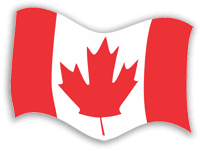|
One of the problems of a bilingual country is, inevitably,
national unity. In Canada, national unity usually — though not
always — refers to relations between English and French
Canadians. Put another way, if the English-language majority
leads, will the French minority follow?
It is a question that Canadian politicians do their best to
avoid. Having a federal system, with a large French-majority
province, Quebec, helps by downloading many issues to the
provincial level. But there are some issues that cannot be
avoided, and of these the greatest is war and peace.
Canada by itself is unlikely to go to war. It is too small, too
distant, and blessedly unencumbered by hostile neighbours. But
Canada has gone to war, repeatedly, on behalf of its friends and
associates — in 1899 for the British Empire in South Africa; in
1914 in World War I for the British Empire; in 1939 for the
Empire, again, in World War II; for the United Nations (and the
United States) in Korea in 1950, in the Gulf War in 1990 and
Afghanistan in 2001.
The two world wars were fought on a massive scale, requiring
hundreds of thousands of Canadian troops fighting on distant and
bloody battlefields. (There were over a million men and women in
the armed forces in World War II, out of a population of less
than 12 million.) Canadian society was turned inside out to
mobilize resources of men, material and money for the conflicts.
Sixty-thousand Canadian soldiers, sailors, and airmen died in
World War I, and 42,000 in World War II, while the wounded and
disabled were counted in the hundreds of thousands.
These two wars took place in the span of just a generation. Some
who served in the first war were still young enough to serve in
the second; in other cases, the soldiers of the first war were
the officials and politicians of the second. And as might be
expected, the experiences (or as some called them, the lessons)
of the first war were applied to the second, and of these
experiences the most obvious was what war meant for
English-French relations.
In 1914 Canada entered the war under the direction of a
Conservative government, headed by Sir Robert Borden. Though
Borden was an intelligent man, his cabinet was weak in terms of
the quality of its ministers, and it was especially weak in
terms of its French-Canadian members. Borden himself was aware
of the problem, but did not know what to do; and the problem
grew in importance as it became clear that French-speaking parts
of the country, mainly Quebec, were not producing troops
proportionate to the size of their population. As casualties
rose, English-Canadians more and more resented the lack of
enlistees from Quebec. The issue exploded in 1917 when Borden
decided to impose conscription, compulsory military service. A
divisive federal election was held, and the country split
mainly, though not entirely, on French-English lines. Sporadic
riots broke out in Quebec in 1918, and many men of military age
refused to report for duty. What the government would have done
had the war lasted much longer remains unknown. The war did end
in November 1918, leaving behind a host of unpleasant memories.
The politicians who took Canada into World War II in 1939 were
mindful of the strains the first war had placed on the country.
The Prime Minister, William Lyon Mackenzie King, a Liberal, was
a far better politician than Borden, and his cabinet was
stronger and, most important, much stronger in Quebec. King and
virtually every other politician regardless of party promised no
conscription for overseas service. There was conscription for
home defence, starting in 1940, but the troops who went overseas
— half a million of them — were all volunteers. (As before, the
rate of enlistment in Quebec was significantly lower than in
English Canada.) But as the war exploded into Russia and the
Pacific in 1941 and 1942 many English Canadians became impatient
with the no conscription promise. King held a plebiscite in 1942
to relieve him of the promise, and as might be expected, English
Canadians mainly voted yes, and French Canadians, no. However,
King did not impose conscription until 1944, when casualties
overseas demanded it.
Unlike 1918, the conscripts sent overseas in 1944 were already
in uniform. And unlike the earlier conflict, there were
prominent French-Canadian politicians who supported sending
them. King had political credibility, enough to win handily in
Quebec in an election just after the end of the war. Though
World War II strained French-English relations, they did not
break, and the short-term political effects were few. In the
aftermath, there was a curious consequence. Canadian war
veterans received massive grants after the war — but because
there were fewer French-Canadian veterans they did not get the
same advantages. It is entirely possible that Quebec after 1945
was less prosperous and less well educated as a result.
Next Instalment: The October Crisis
The Canadian Experience is a 52-week
history series designed to tell the story of our country to all
Canadians. Sponsored by Multimedia Nova Corporation and
Diversity Media Services partners, the series features articles
by our country’s foremost historians on a wide range of topics.
Past articles and author bios are available at
http://www.cdnexperience.ca. The Canadian
Experience is copyright ©2010-2011 Multimedia Nova
Corporation.
|
|
 #28 Conscription
#28 Conscription
